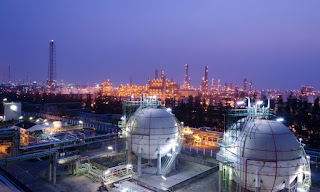As an emerging economy, China posted the fastest economic growth in the past decades. Essential to that development is an energy resource to support its infrastructure plans and a booming manufacturing industry. Because of this, China had become the largest energy consumer and was expected to import more oil than the US by late 2013.
 |
| Image source: princeton.edu |
The forecast looked bright until 2035, driving global demand and compelling exporters to increase capacity to profit from China's boom; but that came to an abrupt halt after 2013.
While many experts had been anticipating China to peak before consumption declines, it happened a decade earlier than expected. The Chinese government had made a drastic revision to its economic structure that addresses the redundancy in energy resource production leading to a surplus capacity; the critical problem of smog and pollution in the country; its transition from energy-intensive industrial operations to a service and information-based economy; and accelerated efforts in moving toward renewable energy—China is already the world leader in wind and solar energy.
In absolute terms, global demand will continue to grow, especially with other emerging economies in the east, but China as the energy sector's most valuable customer has significantly contributed to the slowdown of the world market.
 |
| Image source: rigzone.com |
Cody Winters is a seasoned businessman in the industry of oil and gas, with expertise in managing risk and investments for operators and investors. For more updates on the energy sector, subscribe here.



